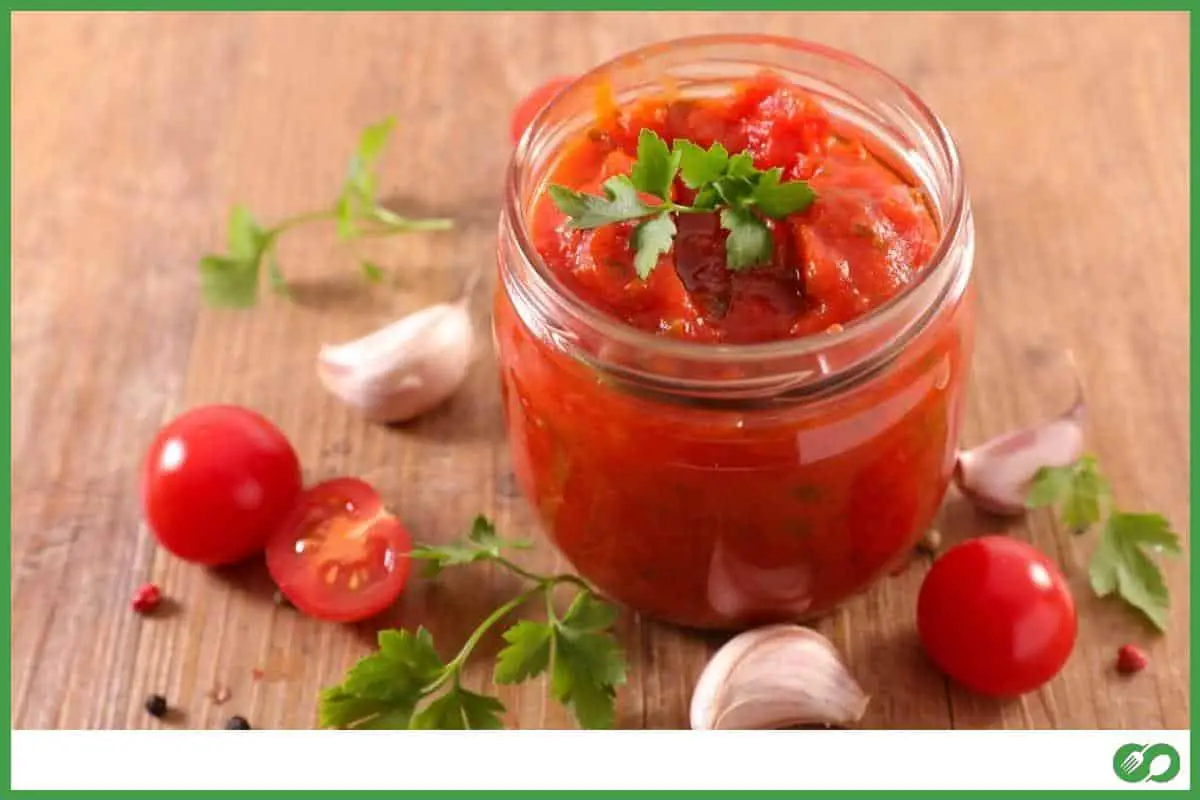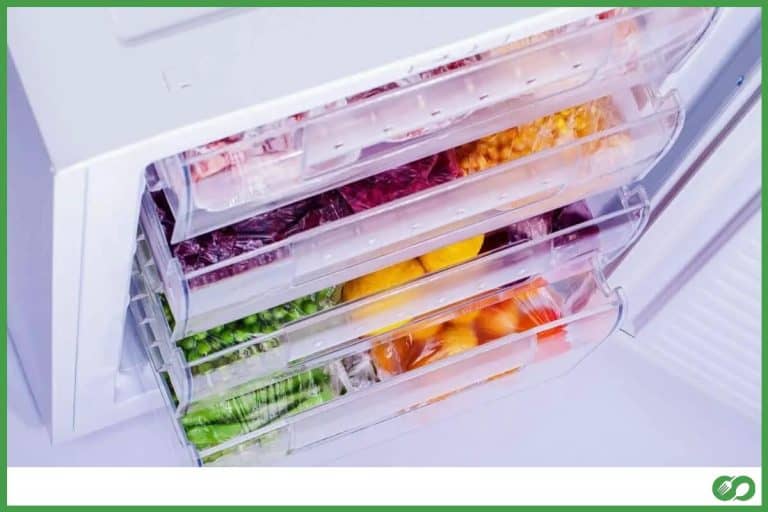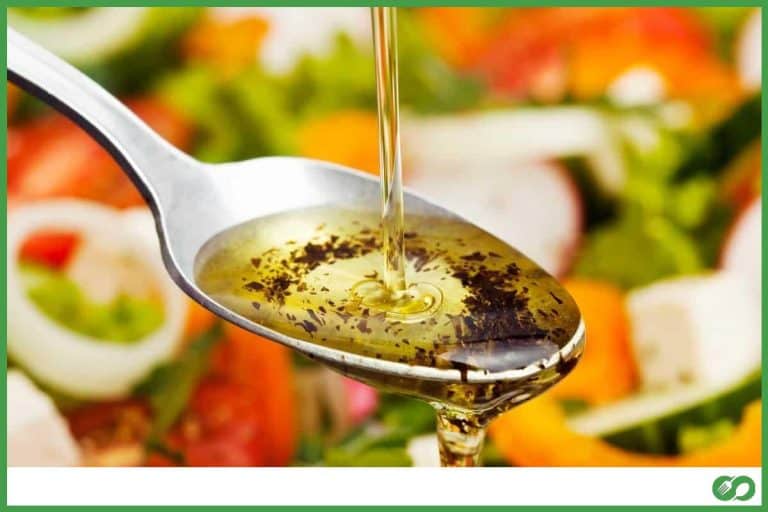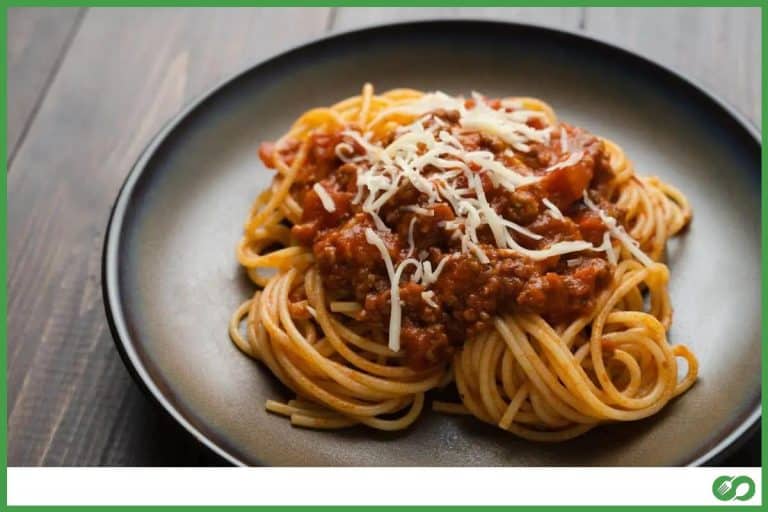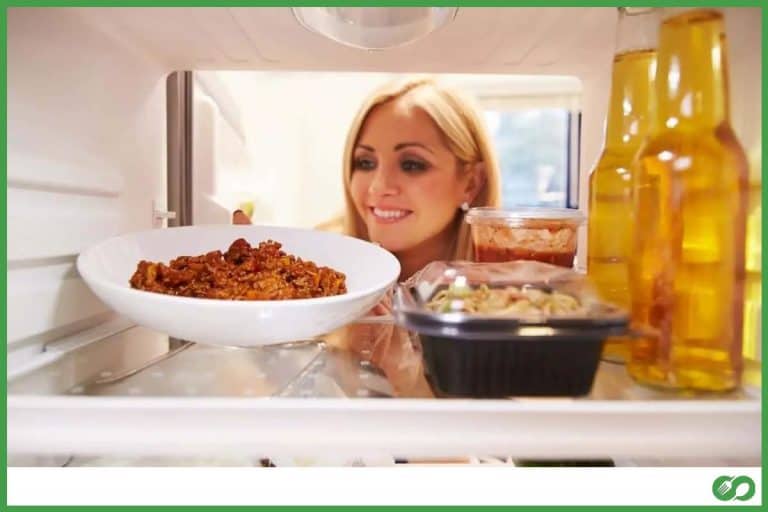How to Store Homemade Tomato Sauce (A Simple Guide)
This post may contain affiliate links which means that, if you choose to make a purchase, I may earn a small commission at no extra cost to you.
Tomato sauce is delicious and versatile, perfect for topping pizzas or adding flavor to stews. Making your own tomato sauce can be an easy way to save money. However, it’s important to store the sauce properly.
So how can you store your homemade tomato sauce?
You can use plastic containers or resealable freezer bags, but the best way to store homemade tomato sauce is in a glass jar, topped with a metallic ‘pop-up’ lid. These jars will keep your tomato sauce fresh in a cupboard for over a year, without any loss of flavor.
Is it Safe to Preserve Homemade Sauce?
If you look at the use-by date on a lot of commercial sauces, then you’ll notice that many of them have a shelf life of a year or more. Some cans and jars can last for several years before they turn bad.
Often, this is thanks to the use of preservatives in the food. Preservatives are chemicals that are added to foods to stop them turning bad, so they last longer. But there’s no need to use them in your tomato sauce.
Instead, by quickly dispensing your freshly cooked, still-hot tomato sauce straight into sanitized glass jars with the lid quickly and tightly closed, the vacuum created in the jar means the popper will be pulled down, telling you the jar is completely sealed.
Let’s go through the process so you know exactly how to safely store your homemade tomato sauce, because after all, you don’t want to lose a single drop!
How to Store Homemade Tomato Sauce
So, your sauce is fully cooked, it’s bubbling away nicely on the stove, and you’re ready to start preserving it.
It’s easy to store the cooled sauce in freezer-safe plastic containers, by simply scooping it in, sealing it, labeling it, and putting it in the freezer. It’ll keep for 3 to 4 months this way.

If you’re using plastic containers, you should wait for the sauce to completely cool down first, or you run the risk of melting your boxes or bags! However, you should always store tomato sauce in glass jars while the sauce is still hot.
The reason for this is that the heat is what causes the metallic lids to pull down as the mixture cools, so that the popping seal mechanism works. There’s more of a knack to preserving your homemade tomato sauce with glass jars, so this is the one we’ll now look at, step by step.
1. Boil the Jars and Lids
It’s vital that there’s no trace of bacteria inside the jars. While it’s less of a problem if the jars are going straight into the freezer, if you’re looking at keeping the jars in a cupboard or larder, they have to be sterile.
If you have a sterilizer, then this is the most ideal way to clean your jars but failing that, completely submerge your jars and lids in boiling water for several minutes, before lifting out the jars carefully (with a cloth or tongs) and setting them on the counter.
2. Add Lemon Juice or Citric Acid Directly in the Bottles
This is a very important part of the preservation process, particularly if you’re not freezing the jars once they’re full.
Tomato sauce has a high pH, and the higher the pH of a product, the greater the risk of dangerous organisms developing. Organisms such as Clostridium botulinum, which can cause botulism, can grow in jars of tomato sauce if the pH of the sauce remains over 4.6.
To guard against this, make your sauce more acidic by adding either one tablespoon of lemon juice, or half a teaspoon of citric acid to each jar before they’re filled.
Don’t worry about this affecting the sauce itself; you may find it makes no difference to the taste when you come to eat the sauce, but if it is slightly too acidic in flavor, then add 1-2 teaspoons of sugar when reheating it, to offset the acidity.
3. Pour in the Sauce
Fill the jars with your hot sauce (don’t let it cool down!) one at a time. Both the jars and the lids will be very hot, thanks to the boiling, so take extra care when performing this step.
4. Quickly Put on the Lids and Screw Tightly
Again, take care. The lids will be piping hot so you may want to tighten them using a dish towel to protect your hands from burning. It’s important that the lids go on now, before the sauce has had chance to cool.
5. Turn the Jars Upside Down
This step isn’t necessarily one you have to take but it does two things: it disperses the acid that you’ve added (via the lemon juice or citric adic) to the jar throughout the sauce, and it also serves to test the seal of your lids.
It won’t really make a difference to the sealing of the lid and won’t affect the popping mechanism in any way, but if you’re not a fan of this part then it’s not a vital step. Once your jars have cooled down, you can turn them the right way up and check that the lids have depressed properly.
6. Store Your Jars!
Once the jars are filled and cooled, and you’re happy that the seals are tight and you can’t pop the lids, then it’s time to store your sauce.
A cool, dark place is the best place to put your tomato sauce, so whether that’s your basement, cupboard, garage or larder, you’ll know best! Remember to clearly label the date your jars were filled, so you know how long you’ll have before the sauce has to be used.
Jars that are outside of the freezer will keep for 12 months.
Always use freezer-safe glass jars, otherwise, the rapid change in temperature can cause the glass to crack. Your pasta sauce will be of better quality if you remove it from the freezer within 3-4 months, or better still if you keep it out of the freezer altogether.
Don’t Worry if a Jar Lid Doesn’t Seal Correctly
Even with the best intentions, at times things don’t go according to plan. You might successfully preserve 9 jars of your delicious tomato sauce, only to find that there’s one stubborn jar that doesn’t want to play nicely.
When you’ve finished dispensing the sauce and you’ve let the jars cool, you’ll notice that all of the lids are pressed down, and don’t make a popping sound. This means they’re safely sealed. But if one is still popping, then don’t worry.
You won’t be able to store it with the others because it won’t be airtight. But there’s no need to go through the process again, by heating it up and re-bottling it. All you’ll do is overcook the sauce, and there’s no guarantee that the same thing won’t happen again.
If you have an unsealed jar, then put it in the refrigerator and eat it within a week. It’ll stay perfectly fresh for this time, and it’s a great excuse to try out your sauce! You can even freeze it for a couple of months but mark the jar so you know which one must be eaten earlier than the others.
Do You Have to Use Glass Jars?

It can work out pretty expensive when you first start buying the jars you need to store your homemade sauces, but these are a one-off purchase that will pay for themselves over time, given that you may never need to buy store-bought sauces again!
However, if cash is tight, then plastic freezer bags filled with sauce and then put into the freezer will do nicely. They won’t last outside of the freezer, so they must be frozen, but they’ll keep for a good 6 months when frozen.
Glass jars are so versatile because as long as you follow the correct process, they can be stored safely outside the freezer, unlike plastic containers or bags.
Does Homemade Tomato Sauce Need to be Refrigerated?
As long as the lid hasn’t popped up, and the jar hasn’t been opened since you sealed it after making it, then there’s no need to put the jars in the refrigerator.
They’ll sit quite happily in a cool, dark place like a kitchen cupboard or pantry for as long as a year, but once they’re opened, they must go in the refrigerator, and then be used within a few days of opening.
Happy Canning!
Whether you’ve grown your own tomatoes, or you’ve developed a taste for making your own, preservative-free tomato sauce, or even if you’re preparing for an apocalypse, making your own sauces and preserving them is a healthy and rewarding experience!
As long as you carefully follow the instructions and look after your jars, your whole family can enjoy your homemade pasta sauce and better still, you’ll know exactly what’s gone into it!

